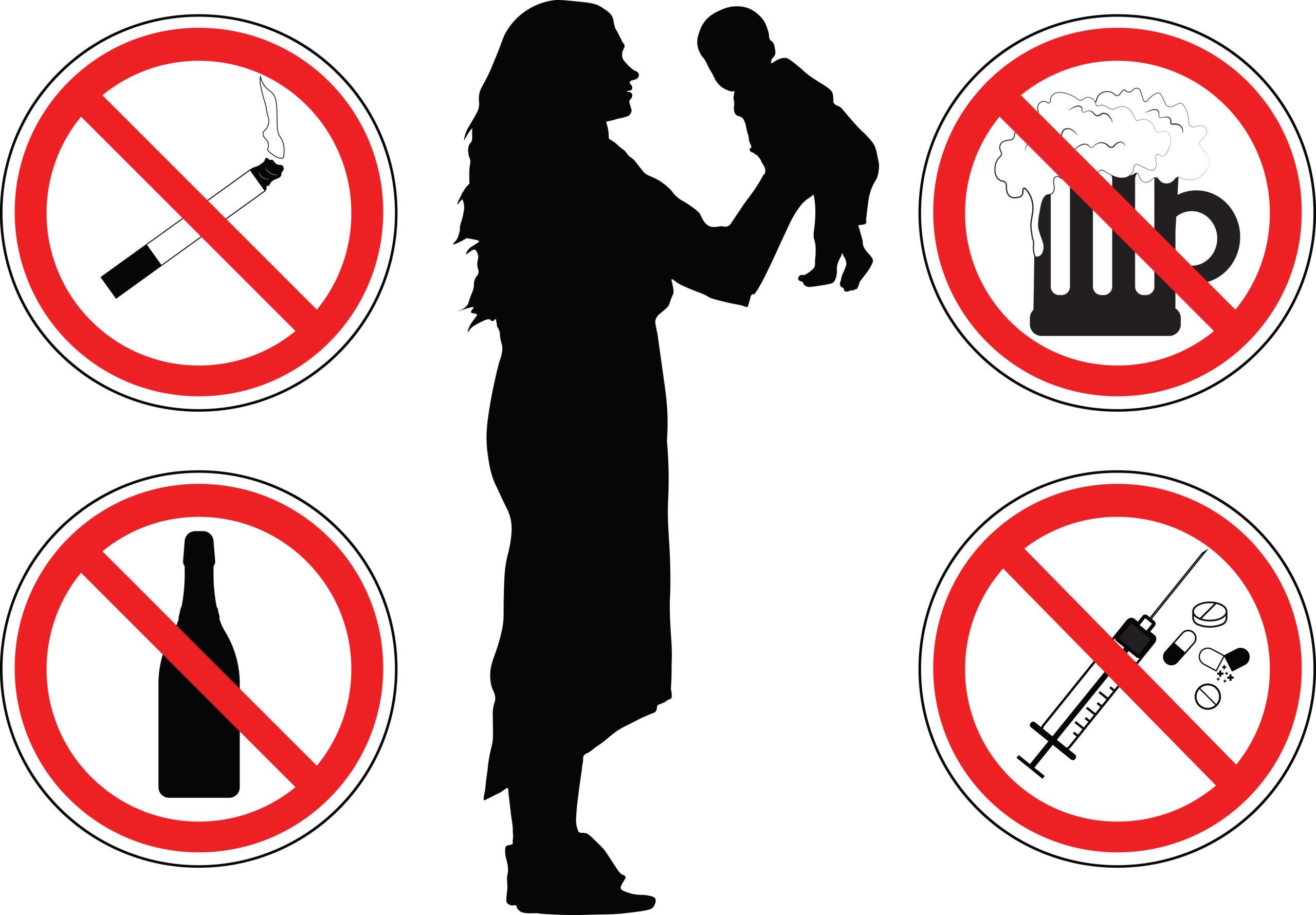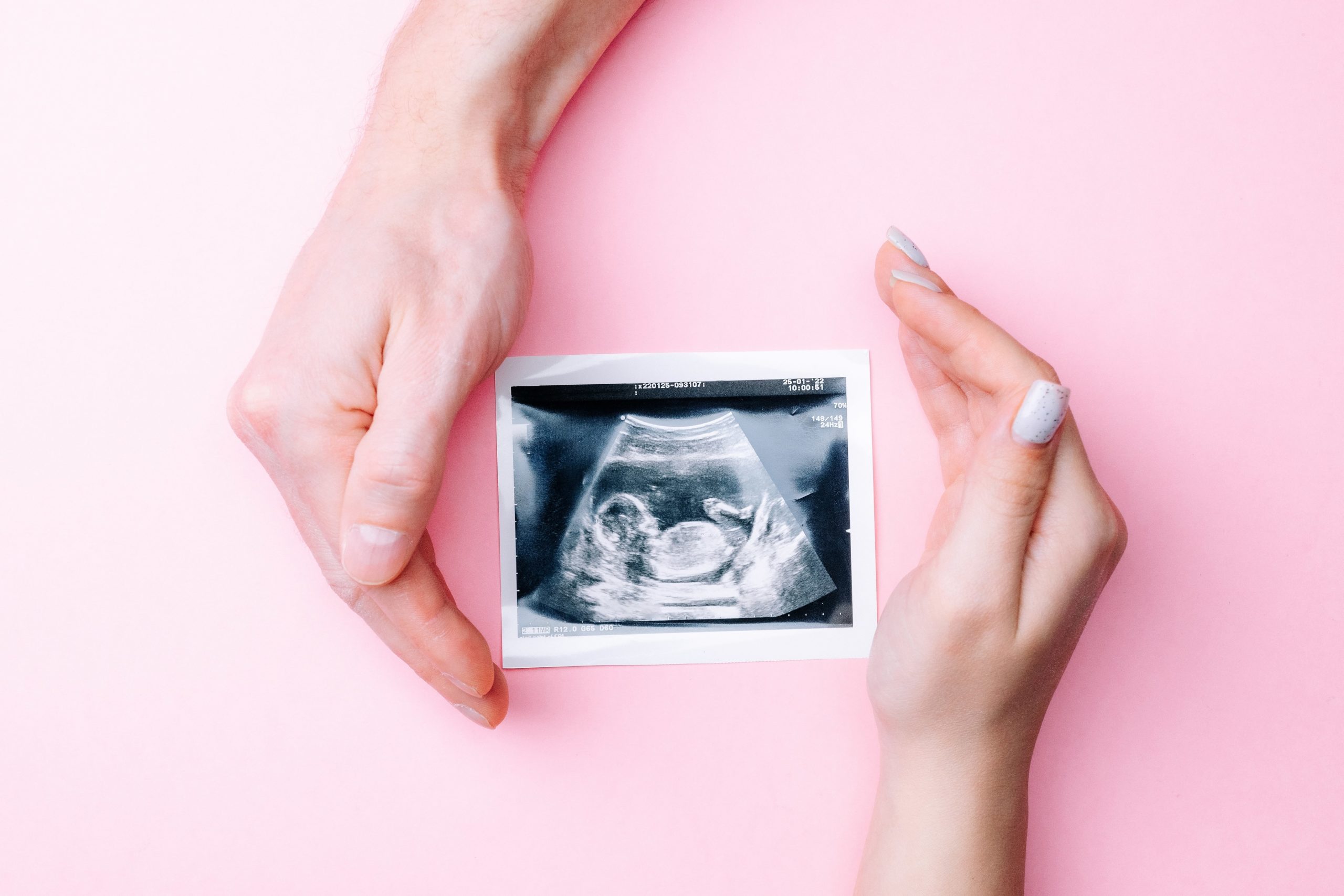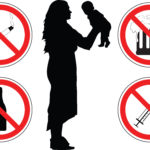
What foods to avoid while breastfeeding?

You may have just discovered that you might be pregnant. You are already feeling the excitement. And congratulations on starting one of the best phases of your life. However, your diet in pregnancy and breastfeeding influences your baby's health in various ways. Breastfeeding care is also one of the most important subjects in postpartum health. The pre-pregnancy period gives you ample time to decide on the right diet and healthy lifestyle choices.
Healthy breastfeeding diet - what does it mean?
A healthy pregnancy diet or breastfeeding diet doesn't just mean eating for two. The facts may contradict a few beliefs prevailing today. The onset of the 3rd month of pregnancy implies that you just need an extra 200-300 kcal per day in addition to your diet before pregnancy. A healthy diet involves a mixture of various food items that satiate your nutritional requirements. Add lots of fruits, vegetables, beans and lentils with a small amount of dairy and meat if and as needed.
What are the foods to avoid while breastfeeding?
While dietary essentials and multivitamins prescribed by your obstetrician/dietician are important, you should avoid certain foods and lifestyle habits while breastfeeding.
Below are the foods to avoid while breastfeeding:
- Fish with high mercury:
The consumption of fish high in mercury level or other foods with mercury may affect breastfeeding. Breast milk with high mercury levels may interfere with your baby's neurological development. If your obstetrician asks you to avoid seafood, avoid it strictly. If you love to eat fish or seafood, make sure that you don't exceed two portions a week.
- Peanuts:
It's best to avoid peanuts if your family has a history of allergies to peanuts. The allergens in the peanuts might progress into the production of breastmilk. They may hamper your baby's health. As a result, the baby may suffer from various health issues. The disorders may include hives or rashes and at times, cough with wheezing. Even a small consumption of peanuts ends up complicating the production and nutritional value of your breastmilk.
- Alcohol:
Never drink alcohol in pregnancy. Even occasional drinking is forbidden in certain cases. Alcohol tends to cross the placenta and hamper your baby's growth in various ways. It may create physical, mental or growth issues in babies. Most obstetricians will forbid you from drinking alcohol the day you conceive. Avoiding alcohol while breastfeeding is as important as avoiding it throughout pregnancy.
- Citrus fruits:
Citrus fruits are known to give a sense of relaxation. They are perhaps the best source of Vitamin C. But they can interfere with your baby's tummy as they are acidic. Babies have an amateur gastrointestinal tract. Therefore, it's hard for their gastrointestinal tract to digest the acidic components. Babies may develop rashes and start spitting up after you breastfeed them. Although grapefruits and oranges can be fussy during breastfeeding, you won't have to remove them from your diet. If you think you are prone to their adverse effects, opt for the other vitamin-C rich fruits. You may consider including pineapples or mangoes in your diet.
- Broccoli:
Broccoli is a vegetable that offers dozens of health benefits. But if you are to breastfeed your munchkin, avoid Broccoli. If you will breastfeed your baby after consuming Broccoli, your baby may develop flatulence or gassiness. Even onions, cauliflower, cabbage and cucumber cause flatulence. It's best to avoid or restrict them while you breastfeed your baby.
- Coffee:
The various ways caffeine impacts the foetus are under scientific scrutiny. The amount of caffeine in coffee is double the amount in cocoa, colas and tea. Try to limit your coffee intake or abstain from it throughout your breastfeeding phase. Some portion of caffeine from the coffee you regularly consume may end up in your breast milk. Insomnia and irritability are the two main signs that caffeine in your breastmilk is affecting your child's health. Caffeine may cause other detrimental effects. It may include a decrease in the levels of haemoglobin. Caffeine hampers the iron content in the milk interfering with the baby's overall nutrition.
- Chocolate:
Chocolate, tea and coffee have a common feature. They stimulate the brain. They are the stimulants that uplift your mood. Chocolate is a rich source of Theobromine. Theobromine is known for an effect similar to caffeine. You might be a chocoholic. But it's time now to take a break. If you are breastfeeding, restrict the occasions you prefer chocolate or chocolate drinks on. Analyse the way your baby behaves if you breastfeed your baby after enjoying your favourite chocolate. If you see irritation and crankiness in your baby, it's a likely sign that chocolate traces in your breastmilk are affecting your baby. The erratic and grumpy behaviour of your baby becomes more evident if you consume over 750 mg of Theobromine every day. It may cause insomnia in the mother as well.
- Peppermint:
Herbs are known to cure old ailments. They act as a remedy when you have almost no other alternative around. They are helpful specifically if you are allergic to certain medications. But when the herbs like peppermint are taken in large doses, they may interfere with the production of breastmilk. The mothers who are lactating should always avoid peppermint.
- Garlic:
Breastmilk is vulnerable to various dietary habits and lifestyle choices. The smell of garlic may interfere with the smell of breastmilk. If your baby develops apathy or discomfort while nursing, it's likely that your baby dislikes the breastmilk. Many babies start frowning when they encounter the smell of garlic. It's better to avoid garlic when you are breastfeeding.
- Dairy products:
Food intolerances and food allergies are growing nowadays due to various reasons. Some babies may develop intolerance to cow milk. Allergens may enter breast milk if the mother is lactating and consuming dairy products in high quantity. Stop consuming dairy products temporarily if you see your baby developing an allergic reaction after you breastfeed your baby. Skin allergies, eczema and insomnia may follow if your baby is allergic to the breastmilk with traces of dairy products. Replace high-fat dairy products with something like organic food products or toned milk.
Related Blogs

NT Scan During Pregnancy: A Crucial Early Screening Test for Your Baby's Health
Read More
Boosting Fertility: A Guide to Conception Calculators and Ovulation Tracking
Read More
Understanding Different Types of Vaginal Birth Delivery
Read More
How to Treat and Prevent Brown Discharge
Read More
Endometriosis Understanding, Diagnosing, and Managing the Condition
Read More
Emotional Support During IVF Treatment
Read More
Understanding Gestational Diabetes: Insights from Dr Shruthi Kalagara
Read More
Urinary Tract Infection (UTI) in Pregnancy
Read More
Early Pregnancy Care for New Pregnant Women: Expert Advice | Motherhood Hospitals
Read More
Body Positivity Tips Post C Section (Cesarean Delivery)
Read MoreRequest A Call Back
Leave a Comment:
View Comments
Previous
Next
HELLO,
Stay update don our latest packages, offer, news, new launches, and more. Enter your email to subscribe to our news letter


 Toll Free Number
Toll Free Number








No comment yet, add your voice below!